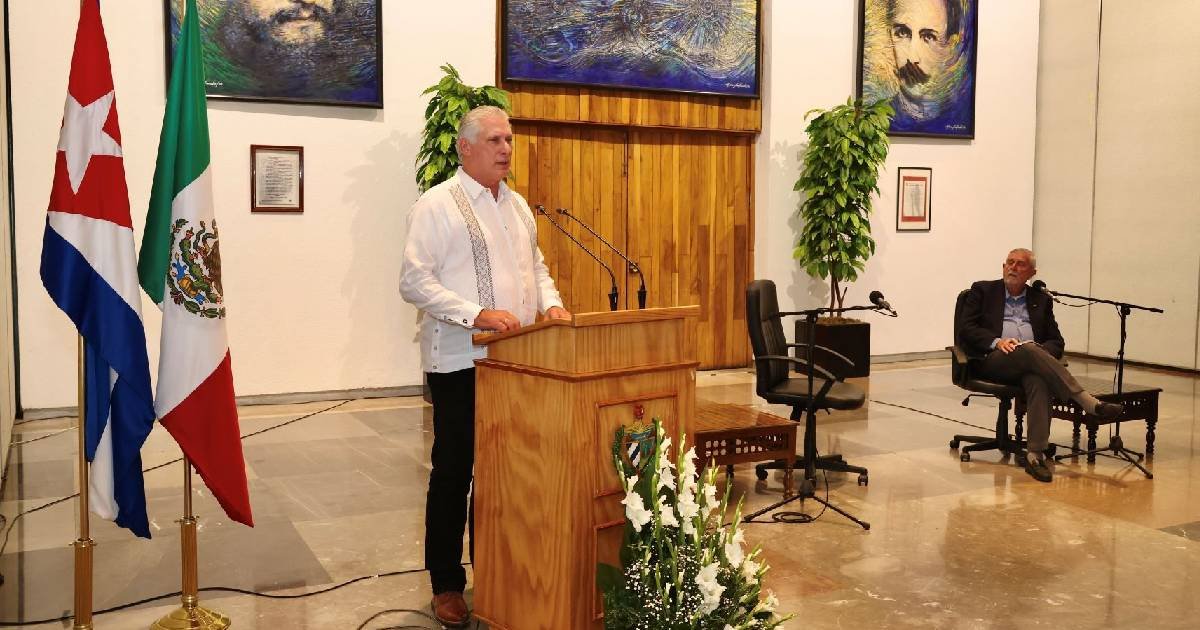Cuban leader Miguel Díaz-Canel, currently in Mexico for the inauguration of President-elect Claudia Sheinbaum, expressed his confidence that Cuba will "overcome" its current challenges. Speaking to Cubans working at the Cuban Embassy in Mexico and a group of doctors stationed in the country, Díaz-Canel questioned, "When we overcome the blockade, what won't we be capable of?" This comment alludes to the untapped potential of the island's workforce, much of which has emigrated in search of better economic opportunities.
From October 1, 2021, to the end of the 2023 fiscal year, approximately 533,000 Cubans have arrived in the United States, representing 4.8% of Cuba's 11.1 million population. Despite these figures, Díaz-Canel emphasized that "only through work, and doing it differently, can Cubans overcome the imperial blockade that makes daily life increasingly difficult."
According to a report from the Cuban Presidency, Díaz-Canel highlighted food production and electricity generation as top priorities for his administration. However, both sectors are facing worsening crises despite various promises from the government. The leader noted that increasing food supply is essential to directly impact prices and mentioned future plans, which seem to hinge on foreign cooperation.
Recently, Díaz-Canel hosted Vietnamese President Tô Lâm, with whom he signed agreements like the Cooperation Plan between the Ministry of Agriculture of the Republic of Cuba and the Ministry of Agriculture and Rural Development of the Socialist Republic of Vietnam. This plan aims to promote rice production to gradually ensure food security in Cuba from 2025 to 2027 and up to 2035.
Dire Social Conditions in Cuba
The VII Report on the State of Social Rights in Cuba 2024, released last July, revealed that "89% of Cuban families suffer from extreme poverty," a one-point increase from the previous year and a 13% jump from 2022. Notably, "7 out of 10 Cubans have skipped breakfast, lunch, or dinner due to a lack of money or food," highlighting the severe economic hardship plaguing the nation.
These significant issues demand immediate solutions to prevent further endangerment of social stability in Cuba. However, these are not the only problems; prolonged and continuous power outages also deeply concern Cuban society. Addressing this, Díaz-Canel mentioned that an investment process next year would improve the country's current situation, a promise he has repeatedly made to fend off criticism.
During his visit, Díaz-Canel praised Mexico and outgoing President Andrés Manuel López Obrador (AMLO), calling Mexico a "strategic and important country for Cuba." Díaz-Canel, his wife Lis Cuesta, and other Cuban officials arrived in Mexico City on Sunday morning to attend Sheinbaum's inauguration scheduled for Tuesday, October 1.
